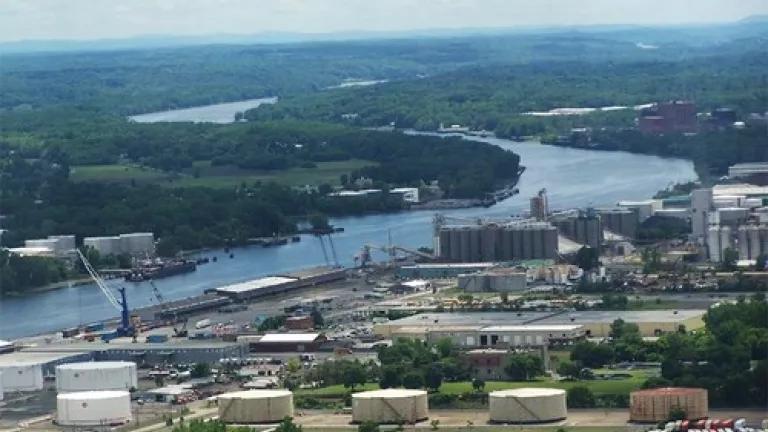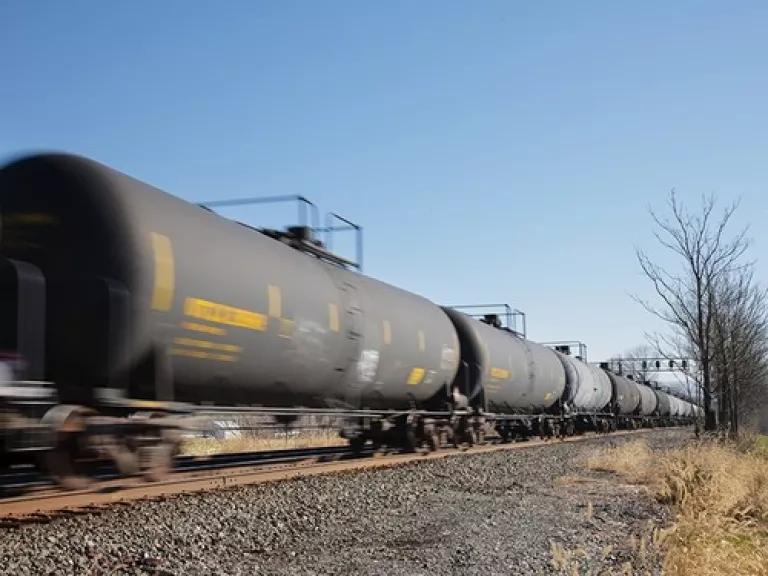
In a stunning and laudable reversal, New York's Department of Environmental Conservation (DEC) has required Global Partners' Port of Albany air permit application to undergo a full environmental review. Global's air permit application is part of its plans to retrofit its existing Port of Albany crude-by-rail facility to allow it to begin handling tar sands crude oil from Alberta, Canada. The tar sands retrofit would require Global to install seven boilers that would be used to keep the tar sands warm as it is moved from rail cars into storage tanks. Eventually, this oil would be loaded onto barges and shipped down the Hudson River, destined for refineries in New Jersey, Delaware, and the Gulf Coast. Following receipt of 19,000 public comments and concerns from the U.S. Environmental Protection Agency, DEC has reversed its November 2013 finding that Global's proposed project would "not have a significant environmental impact." As one of the world's most carbon-intensive crude oils whose production is laying waste to Alberta's boreal forest, the DEC's November 2013 finding flew in the face of what is known about the environmental impacts of adding tar sands oil to our fuel mix. What's worse, infrastructure like Global's proposed modifications would lock the region into at least 50 years of tar sands transport and use at a time when the region needs to transition to cleaner fuels, especially for transportation. Moving forward, DEC must seriously consider the cumulative and long-term impacts of approving this project on both Albany and the broader region.
Port of Albany, Photo by Andy Arthur, Flickr
The DEC's decision to conduct a full environmental review of the facility's proposed retrofit marks a major milestone in the ongoing public debate surrounding the environmental impacts of tar sands. One of the world's dirtiest oils, the tar sands can cause serious and long-lasting environmental harms at every stage of their lifecycle, from extraction and transport to refining and consumption. For New Yorkers and others in the Northeast, these environmental threats include the risk of a spill or explosion from a rail tank car; fugitive emissions of toxic chemicals during unloading, storage, and reloading; and the risk of a major spill into the Hudson River. As many in Albany will remember, the immediacy of the risk to the Hudson was highlighted when the very first barge loaded with crude oil from the Port of Albany ran aground in December 2012. Any spill of this tar sands oil would be incredibly difficult to clean up and could lead to years of ongoing contamination.

Crude oil train, Photo by Dervin Witmer, Shutterstock
According to the DEC's letter to Global, a number of factors informed their recent decision to conduct a much-needed, full environmental review of the project. Global's permit application completely lacked emissions monitoring data for hydrogen sulfide, as well as projected net emissions increases associated with the proposal as a whole. It also failed to address the potential for adverse impacts on a nearby housing development containing 137 units. Taken together, the absence of this information in its original filing with the state demonstrates Global's apparent lack of concern for the community through which it hopes to transport increasing volumes of its dangerous, difficult to clean-up, tar sands crude oil.

While the threat of a broader and larger tar sands invasion of the U.S. continues to loom over our communities, waterways, air, and climate, the DEC's decision is a significant roadblock in the tar sands industry's expansion plans. With refineries in New Jersey and Delaware already configured to refine tar sands crude oil, the industry has long eyed the Port of Albany as a gateway to dramatically increasing the quantity of tar sands refined on the East Coast. Now, because of the DEC's decision and the recent two-year delay for TransCanada's Energy East tar sands pipeline, there is hope that the Northeast will continue to remain mostly tar sands free into the foreseeable future. This gives local, state, and federal decision-makers time to take action to prevent a tar sands invasion and lay the groundwork for an alternative energy future.

